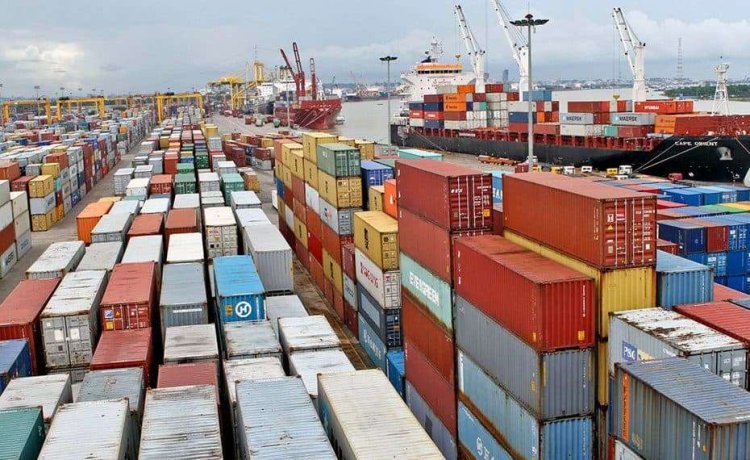To curb the rise in commodity prices.. Egypt reduces costs for importers

The Egyptian government has taken a new qualitative step in confronting rising prices after inflation rates in the country jumped to record levels during the recent period with the decline in the exchange rate of the pound, due to the widening dollar gap resulting from the foreign currency scarcity crisis.
This came after the Egyptian Council of Ministers directed the Holding Company for Maritime and Land Transport and its subsidiaries to extend the grace period for exempting containers from storage expenses paid by importers, for the benefit of container companies and warehousing companies, for an exceptional period of 3 months, renewable.
Dry ports
The Council also decided to address shipping lines to study reducing delay fines on customers, taking into account the current circumstances, while allowing the container to be transported to one of the warehouses or customs deposits available either outside the port or to one of the land and dry ports, and developing a mechanism for implementation.
The Egyptian authorities are constantly seeking to accelerate the release of goods, despite the currency scarcity crisis, and this is evident from the continuous releases of yellow corn, fodder, and others, as a means of curbing high prices and inflation in the local market, which has witnessed a steady rise since last June.
Inflation escalated in Egypt
The latest data issued by the Central Agency for Public Mobilization and Statistics in Egypt revealed that the annual inflation rate in Egyptian cities rose to 38% last September, compared to about 37.4% in August, as urban inflation recorded a record high for the fourth month in a row.
On a monthly basis during September 2023, the pace of inflation in Egypt increased to 2% from 1.6% in August, which prompted the government to launch an initiative to reduce commodity prices in agreement with the private sector, as the initiative included exempting imports of a number of goods from customs for about 6 months.

Trends in reducing commodity prices
Economist Dr. Ahmed Al-Shami said that the Council of Ministers’ decision aims primarily to reduce costs for importers and manufacturers, explaining that the fees paid by investors raise manufacturing and production costs, and then their impact ultimately appears on the consumer through rising commodity prices.
He added in press statements that this measure confirms the continued accumulation of some goods in the ports, pointing out that this is a solution to curb prices, but it is incomplete, as the government must provide the currency necessary to release the goods, in addition to increasing the number of land and dry ports, to prevent any future accumulations. For containers.
Al-Shami, a member of the Suez Investors Association, pointed out that goods that are imported from abroad should be dealt with more seriously, especially essential ones, in terms of providing foreign exchange resources, because delaying their release results in a scarcity of goods in the markets and thus their prices will rise later and the existence of a parallel market for some of them with a long period of time. The crisis, which appeared to be strong in the pharmaceutical sector.


 Shrouq
Shrouq 












